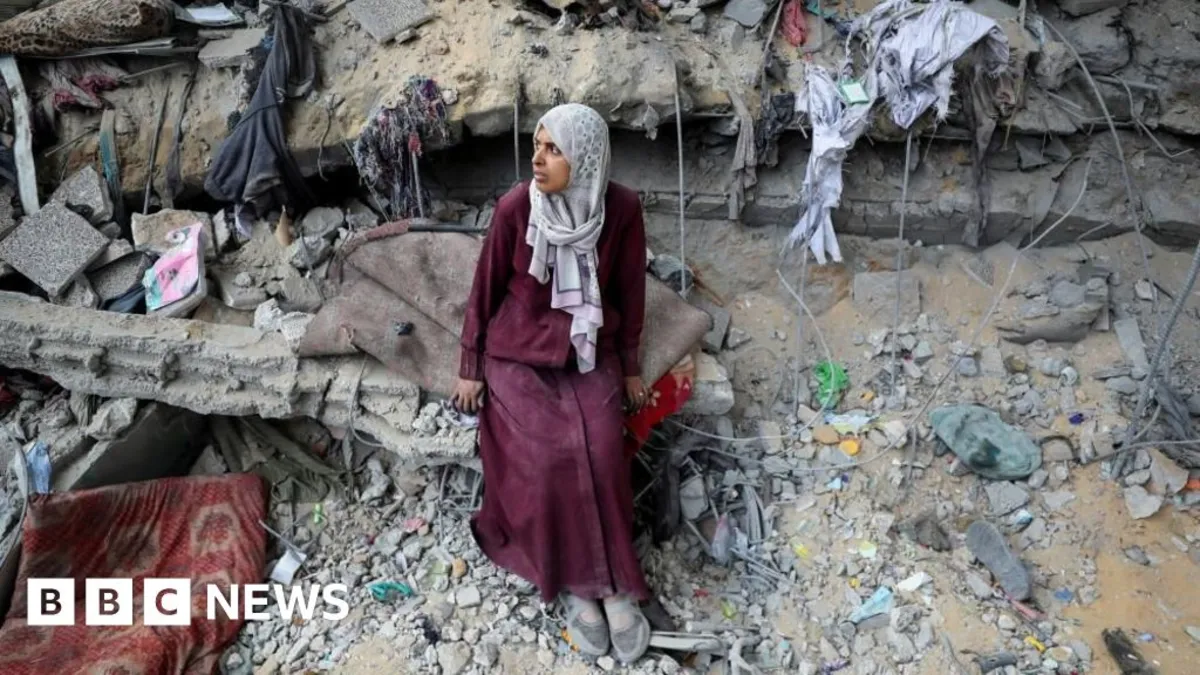
The Israeli government has officially approved the first phase of a crucial deal aimed at achieving a ceasefire in Gaza, which also includes the release of hostages and prisoners. Israeli Prime Minister Benjamin Netanyahu announced the framework for the release of all hostages, both living and deceased, through a post on X early on Friday. This significant step indicates a pivotal moment in the ongoing conflict.
As part of the agreement, the Israeli military will withdraw to a line that ensures its control over approximately 53% of Gaza. Following this, Hamas is required to release 20 living hostages within a 72-hour window, alongside the return of the bodies of 28 deceased hostages. In response, Israel plans to release around 250 Palestinian prisoners who are serving life sentences, as well as 1,700 detainees from Gaza, according to a Palestinian source cited by the BBC.
In a significant move to address the humanitarian crisis, hundreds of aid lorries will deliver essential supplies, including food, medicine, and fuel, to the two million residents of Gaza. Many of these individuals have been displaced, with numerous families residing in tents or amidst the rubble of destroyed buildings. The UN has reported that Israel will permit 400 aid lorries to enter Gaza each day during the initial five days of the ceasefire, with plans to increase this number in subsequent phases, as confirmed by a senior Palestinian official.
The United States is enhancing its military presence in the region, moving up to 200 troops already stationed in the Middle East to Israel. This contingent will play a crucial role in coordinating a multinational force tasked with monitoring the ceasefire. This force will include personnel from Arab and Muslim nations such as Egypt, Qatar, and Turkey, who will observe the truce and report any violations. U.S. officials have clarified that no American forces will enter Gaza as part of this operation.
The task force will be overseen by U.S. Central Command and is intended to facilitate the implementation of the ceasefire agreement while coordinating humanitarian assistance. Once the hostage and prisoner exchange is successfully completed, there are plans for the establishment of an International Stabilisation Force; however, details regarding this initiative remain to be finalized.
The approval of this deal by the Israeli government followed extensive cabinet meetings that extended into the early hours of Friday. Key figures, including U.S. President Donald Trump's son-in-law Jared Kushner and special envoy Steve Witkoff, participated in discussions with Netanyahu before the cabinet meeting. Far-right minister Itamar Ben-Gvir expressed his opposition to the deal, citing concerns over the release of prisoners accused of murder, and indicated that he would consider voting to dissolve the government if Hamas remains intact.
While this agreement marks a significant diplomatic breakthrough, it addresses only a fraction of Trump's broader 20-point peace initiative. Key issues, such as the disarmament of Hamas and the future governance of Gaza, continue to be contentious and unresolved. Hamas has maintained that it will not disarm until a Palestinian state is established. In contrast, Trump's plan envisions Gaza under a temporary technocratic administration before transitioning to the Palestinian Authority.
The announcement of the ceasefire deal has sparked scenes of celebration in both Israel and Gaza. In Tel Aviv's Hostages' Square, crowds waved Israeli and American flags, chanting "They're coming home," as fireworks illuminated the night sky. Meanwhile, in southern Gaza, Hanaa Almadhoun, a mother of three displaced by the conflict, expressed her relief and optimism, hoping to return to her home in the north.
The conflict escalated following the Hamas attacks on Israel on October 7, 2023, which resulted in approximately 1,200 fatalities and the abduction of 251 individuals. Since the onset of Israel's military campaign, the Hamas-run health ministry in Gaza reports that 67,194 Palestinians have been killed, including 20,179 children. These figures have been validated by the UN and other international organizations.
The health ministry has also reported that an additional 460 individuals have died from malnutrition, including 182 deaths since famine conditions were confirmed in Gaza City in August by UN-backed experts. Prominent figures, including UN leaders and former UK Foreign Secretary David Lammy, have described the situation as a man-made crisis exacerbated by Israeli aid restrictions, including an 11-week total blockade earlier this year, which Israel claimed was aimed at pressuring Hamas to release hostages. Israel has dismissed the UN-backed report as inaccurate and has asserted that it currently does not restrict aid.